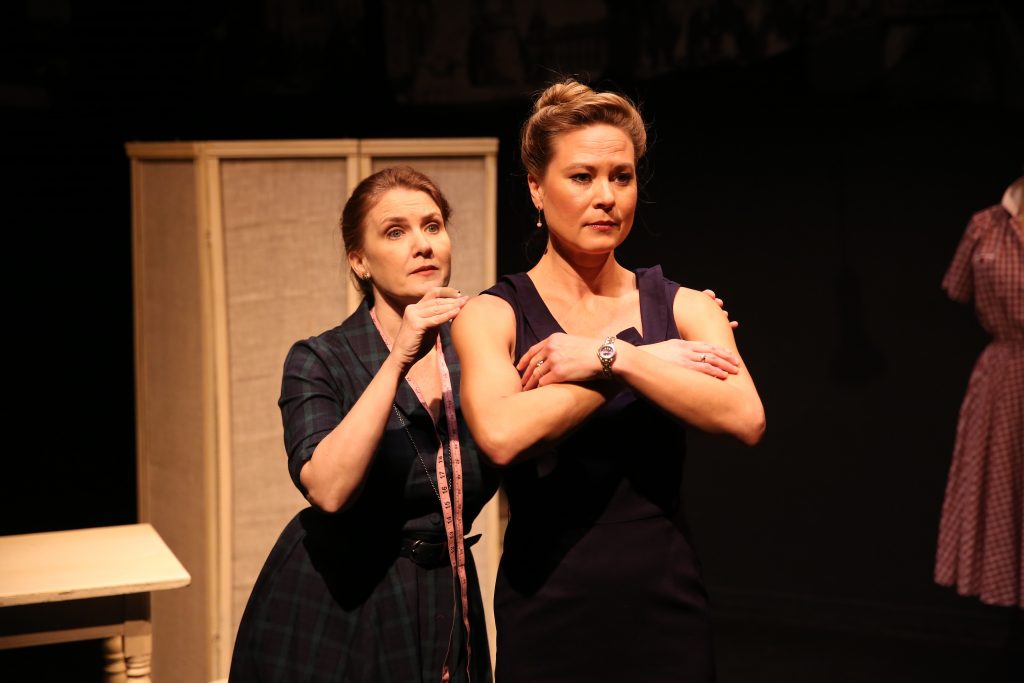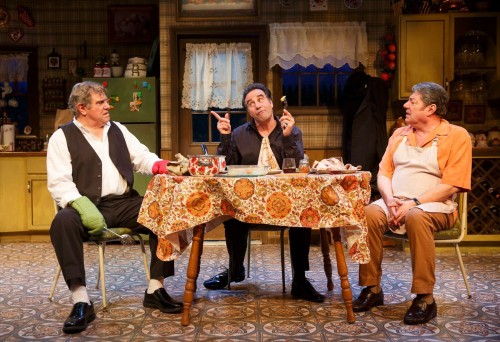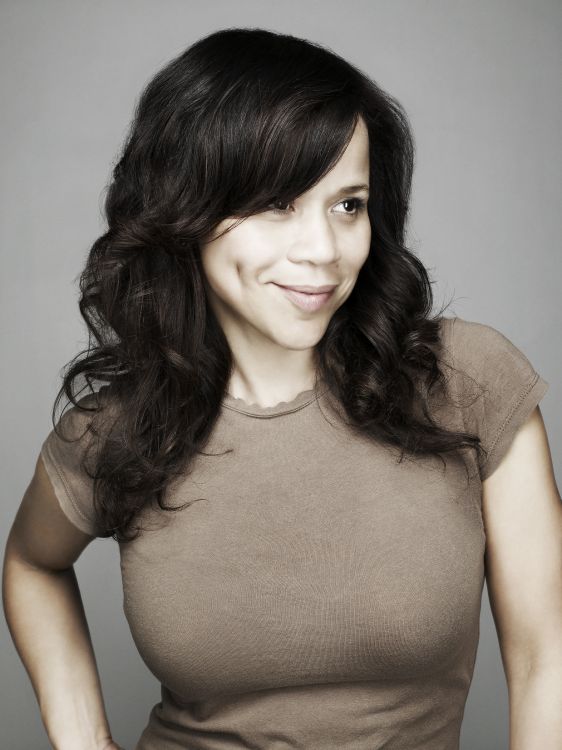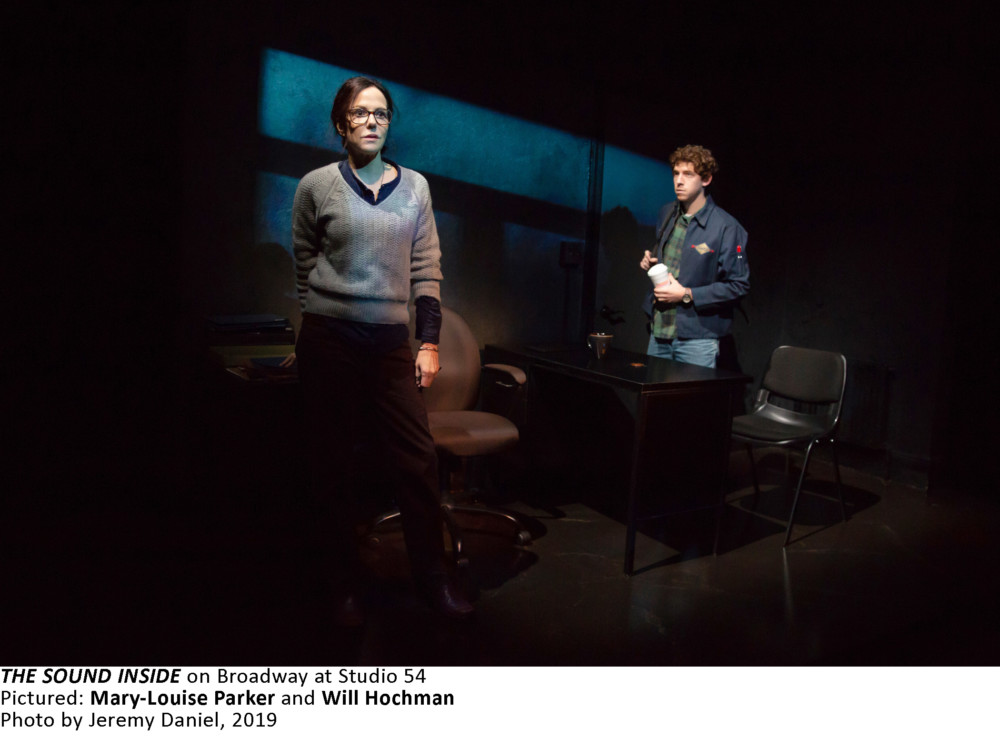By Beatrice Williams-Rude
A gripping new play, The Dressmaker’s Secret, is having its world premiere tonight, Feb. 14.
Set in Romania in 1963, but concerned with events in 1944 during the Nazi occupation, this work examines the scars and the wounds that cannot heal. The population of Kolozsvar is largely Romanian and Hungarian with the few Jews who survived the Holocaust and some Roma.
Maria, highly cultured, a lover of theater and music, earns her livelihood as a dressmaker. Life has been hard for her but the joy has been her son, Robi, now 19. We first meet Robi when he returns from work and angrily changes the radio station that was broadcasting Strauss waltzes to one offering pop music more to his taste. He’s openly hostile to his mother. This is more than teenage rebellion. He demands to know the name of his father, about whom his mother would only say “he died in the war.” Yet again his mother refuses to provide any more information. Robi feels boxed in—by an oppressive government, a mother for whom he is the sole raison d’être, and a job he hates. He dreams about living in the West.
In a surprise visit, Irma, once Maria’s best friend, has ordered a dress. Life has been kinder to the still beautiful, glamorous and seductive Irma. She wants a dress she can wear to the opera. The question in Maria’s mind is why, after years of absence, Irma has appeared. When Robi arrives and sees partially undressed Irma, he’s enthralled, much to Maria’s dismay.
Maria had been engaged to Irma’s brother, Robert, an officer in the Hungarian army, part of the Nazi war machine. But Maria befriended and sheltered an escapee from a Jewish labor camp, a teacher, who became her lover. When Zoli was betrayed and transported to Auschwitz, Maria was convinced Robert and Irma were responsible. We learn later that she was only half right.
During a fitting of the dress, Irma tells Maria that Robert, who’s been living very well in West Berlin, was coming for a visit and would like to see her. It is from this point that we uncover layer after layer of secrets with profound emotional consequences. Irma, seemingly a butterfly, was more like a honeybee, working at great peril to organize resistance to the Nazis. Robert has come to “confess” and apologize to Maria, and as the story plays out, to expiate his very great crime by getting Robi out of Romania, taking care of him and guiding him to the life he wants.
The Dressmaker’s Secret, by Sarah Levine Simon and Mihai Grunfeld, based on a novel by Mihai Grunfeld, is very well constructed, with characters fully realized.
Maria is sensitively embodied by Tracy Swallows; Irma is enchantingly portrayed by Carolyn Koziowski; exuberant Robert, the most complex of the characters, is peeled until fully exposed in a splendid performance by Robert S. Gregory; and Robi—when he finally accepts that his father was a Jew, celebrates his heritage, and tells his mother, “I wanted you to know that I am not Robert’s or Zoli’s. I am yours. Only yours.” When he tells his mother he loves her there’s not a dry eye in the house. Yes, Bryan Burton wrenchingly extracts every drop of pathos.
The work is superbly directed by Roger Hendricks Simon, who turns the small space into an advantage—a means of intensifying the claustrophobic feeling.
While the audience is in the dark, before the work begins and during scene changes, glorious piano music is heard, mostly Chopin, and most powerfully, the Revolutionary Etude, all particularly fitting given that Irma is a piano teacher.
When the heretofore unspoken truths are laid bare and Irma tells Maria “Come, my heroine, what I did in the war was nothing compared to what you are doing now” (letting Robi go). the women embrace and the friendship is reborn.
The Dressmaker’s Secret was produced by Roger Hendricks Simon, The Simon Studio.
The scenic and lighting designs are by Stephen C. Jones; costumes by Molly R. Seidel.
Photos: Carol Rosegg
The play is at 59E59 Theaters (between Madison and Park Aves.) through March 5. The running time is 2 hours and 20 minutes with an intermission. (The program erroneously says 1 hour and 30 minutes with intermission.)

























